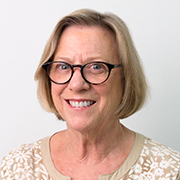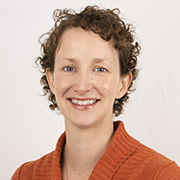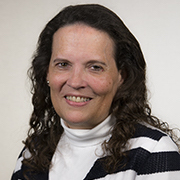Michael A. Plummer
Project Director

Mr. Plummer chairs I-SMART’s governance board and oversees the project on behalf of the Maryland State Department of Education, where he is the Program Manager for Assessment of Students with Disabilities. He is responsible for the development, administration, scoring, and reporting of results of all statewide assessments for students with significant cognitive disabilities. Previously, Michael spent 14 years as the Director of Curriculum, Assessment and IEP’s at The Maryland School for the Blind. He received a B.A. in Journalism and Communications from Point Park University and an M.A. in Education and Curriculum Development at Temple University. He is a 2009 Fulbright Scholar with international experience that includes research, programs and consultancies in China. His background also includes leadership roles in both the private and for-profit education sector in diverse environments including special education, early childhood learning, multi-venture centers, and startup schools. Michael resides in Baltimore, Maryland with his family.
Meagan Karvonen
Principal Investigator

Dr. Karvonen, principal investigator, oversees the governance, research, design, implementation, and dissemination activities for I-SMART. She also serves as the primary contact between ATLAS and Maryland, I-SMART’s lead partner state. Dr. Karvonen is director of ATLAS and the director of the Dynamic Learning Maps® Alternate Assessment Consortium, which delivers alternate assessments in English language arts and mathematics to students with significant cognitive disabilities in many states across the United States. She has nearly 20 years’ experience managing state- and federally funded projects. She has co-authored 40 articles and book chapters, more than 50 technical reports, and nearly 100 presentations. Her recent work includes developing methodologies for investigating opportunity to learn, fairness, content progressions, and growth within alternate assessments. She is especially interested in validity research and the implications of policy for students with significant cognitive disabilities and their teachers.
Jose Blackorby
Co-Principal Investigator

Dr. Blackorby, co-principal investigator serves on the leadership and research teams and co-leads the assessment design team for I-SMART. Dr. Blackorby is the senior director of research and development at CAST. He has over 20 years’ expertise in the design and implementation of large-scale, multifaceted studies with research, policy, and practical implications for students with disabilities. Dr. Blackorby led a team to design the first national assessment inclusive of 10,000 students in all 13 federal disability categories as part of the Special Education Elementary Longitudinal Study, and he was principal investigator of the IES-funded National Study of Alternate Assessments, which documented alternate assessment practices across the country. A widely published author, Dr. Blackorby serves in an advisory role on national panels for government initiatives and private organizations. He contributed peer-reviewed publications and reports that have had policy significance in the areas of special education, academic achievement, STEM, universal design for learning, and alternate assessment.
Russell Swinburne Romine
Co-Principal Investigator

Dr. Swinburne Romine, co-principal investigator, lends his expertise in developing learning map models for the Dynamic Learning Maps® and Enhanced Learning Maps projects to I-SMART. He is on I-SMART’s leadership and research teams and co-leads the assessment design team. He currently serves as associate director for test development and production for the Dynamic Learning Maps Alternate Assessment Consortium, which delivers alternate assessments in English language arts and mathematics to students with significant cognitive disabilities in many states across the United States. Swinburne Romine’s research interests are in the areas of intersection between developmental psycholinguistics and large-scale assessment of reading comprehension; he has significant expertise in using principles of evidence-centered design and universal design for learning to create assessments for students with disabilities. He earned a doctorate in educational psychology from the University of Minnesota, where he previously taught classes in educational psychology and educational measurement.
Gail Tiemann
Co-Principal Investigator, Research Project Manager

Dr. Tiemann, co-principal investigator and I-SMART’s project manager, oversees overall project implementation and co-leads I-SMART’s leadership and research teams. She recently served as co-director of a statewide summative assessment program, directing the development, administration, and score reporting of next-generation assessments in English language arts, mathematics, and science. Previously, Dr. Tiemann directed the development and validation of performance tasks for the Career Pathways Assessment program and coordinated the development of the Adaptive Reading Motivation Measures. Tiemann earned a doctorate in educational psychology from the University of Kansas, specializing in research, evaluation, measurement, and statistics. She has 17 years’ experience managing federal program activities, including facilitation of multiple partners, data collection and analysis, resource development, and reporting. Her research has included topics in validity evaluation, test security, innovative item types, educational technology, and culturally responsive assessment and evaluation.
Sue Bechard
Senior Advisor

Dr. Bechard serves on I-SMART’s leadership and research teams as a senior advisor to the project. Dr. Bechard has served in a similar role for the Dynamic Learning Maps® Alternate Assessment Consortium since 2011. She has focused her career on promoting inclusive educational assessment and instructional practices through design and implementation of comprehensive alternate assessment systems in more than 18 states. This has included providing face-to-face and online professional development opportunities to teachers of students with significant cognitive disabilities. She has served as principal investigator or leadership team member on numerous federally funded grants. Her research focuses on the development, validation, alignment, and consequences of assessments for students with disabilities.
Robert Dolan
Assessment Design Team Member

Dr. Dolan serves on the assessment design team and helps ensure that I-SMART assessments meet the standards of universal design. He brings more than 30 years of experience in cognitive neuroscience, learning science, assessment, instructional design, and software architecture and engineering. He is an expert in applying universal design for learning to assessment of diverse learners in terms of both pedagogy and technology integration. Prior to establishing his own consulting organization in 2013, Dr. Dolan spent thirteen years as a senior research scientist at CAST (2000–2007) and Pearson (2007–2013). At both organizations he designed, implemented, and evaluated technology-based learning and assessment solutions with emphases on cognition, accessibility, and usability. He led the development of extensive guidelines for applying universal design for learning to assessment design and has focused on research and innovation at the intersections of formative assessment, adaptive learning, and educational data mining.
David Rose
Assessment Design Team Member

Dr. Rose serves on the assessment design team and contributes to the development of assessments that meet the standards of universal design for learning. Dr. Rose is a developmental neuropsychologist and educator whose primary focus is on the development of new technologies for learning. In 1984, he co-founded CAST, a not-for-profit research and development organization whose mission is to improve education for all learners through innovative uses of modern multimedia technology and contemporary research in the cognitive neurosciences. That work has grown into the field called universal design for learning, which now influences educational policy and practice throughout the United States and internationally. Rose is the coauthor of five scholarly books, numerous award-winning educational technologies, and dozens of chapters and research journal articles.
Lindsay Ruhter
Assessment Design Team Member

Ms. Ruhter serves on I-SMART’s assessment design team and leads the development of innovative test items, as well as supports development of the learning map model. Ms. Ruhter earned a master’s degree in special education at the College of William and Mary. She currently serves as test development coordinator for the Dynamic Learning Maps® Alternate Assessment Consortium, where she uses her special education background to review and edit test items to increase accessibility to science content for students with significant cognitive disabilities. She also develops and conducts training for item writers, internal reviewers, and external reviewers. Before joining DLM, Ms. Ruhter was a special education teacher in Virginia, where she taught students with mild to moderate disabilities and students with significant cognitive disabilities.
Michelle Shipman
Assessment Design Team Member

Ms. Shipman serves on the assessment design team and supervises the development of Essential Element Concept Maps and preparations for item writing and external review. Ms. Shipman has served as the ELA test development coordinator for the Dynamic Learning Maps® Consortium since 2012 and is also the test development lead for all CETE-delivered alternate assessments based on alternate academic achievement standards. Ms. Shipman’s research involves text development for reading assessments and the design of writing assessments for students with significant cognitive disabilities to further their literacy skills. Ms. Shipman's 20-year teaching career included teaching science and language arts classes. She earned a BA in education from Washburn University with emphases in English and science.
Brooke Nash
Research & Psychometric Team Member

Dr. Nash serves on I-SMART’s research team and leads the psychometric team with principal responsibility for psychometrics, data management, and analysis. Dr. Nash earned a doctorate in in educational psychology from the University of Kansas, specializing in research, evaluation, measurement, and statistics with a minor in special education. She currently works at ATLAS as a senior psychometrician. She previously worked as a psychometrician at Ascend Learning, specializing in assessments in the higher education field. Her research interests include formative assessment, scoring models for technology-enabled assessments, and implementation of diagnostic assessment platforms.
Amy Clark
Psychometric Team Member

Dr. Clark serves on I-SMART’s psychometric team and supports data management and analysis. Dr. Clark began her career as a classroom teacher and developed an interest in the use of assessment for improving student outcomes. She received a doctorate in educational psychology from the University of Kansas, specializing in research, evaluation, measurement, and statistics with a minor in curriculum studies. She currently serves as a psychometrician for the Dynamic Learning Maps® Alternate Assessment Consortium. Her research interests include exploring potential threats to validity, the development of actionable score reports, and the implementation of diagnostic assessment platforms.
Susan Martin
Technology Team Member

Susan Martin is director of Agile Technology Solutions at the University of Kansas, which produces the software through which I-SMART assessments are delivered and the reporting dashboard teachers will use to access reports on students’ I-SMART assessment performance. Ms. Martin is a key partner with ATLAS, coordinating with stakeholders and overseeing program execution. Martin has spent her entire career working in software development and integration. She came to KU after nearly 20 years in management at Hewlett Packard Enterprise, where her work included leading project management, business analysis, development, database administration, and quality assurance teams.
